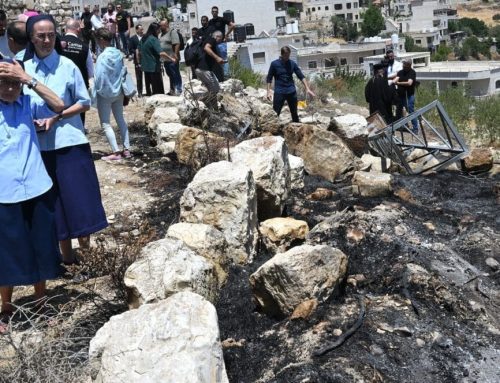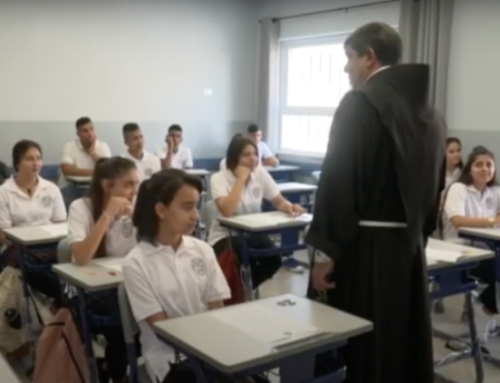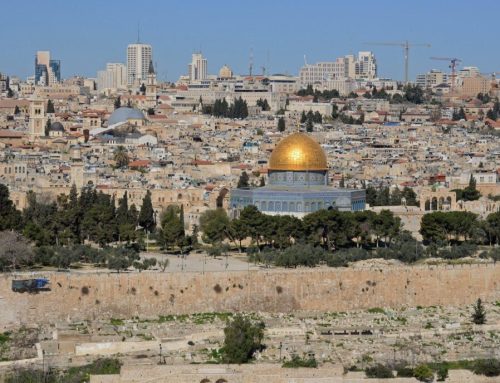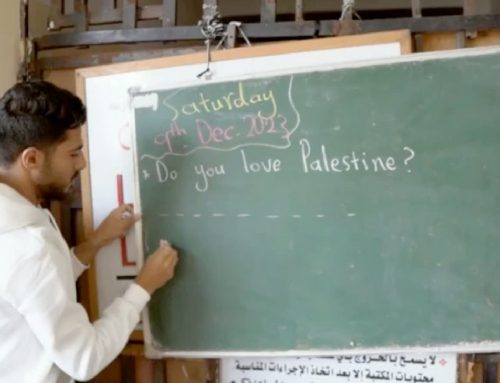
In a Sept. 3 letter to the U.S. president, Hanson expressed his concern over Obama’s Aug. 31 announcement that the United States intends to launch a military strike against Syria in response to the use of chemical weapons within that country.
“I agree with your clear renunciation of any use of chemical weapons. Such weapons have no place in our world, and their use by any party is unacceptable under any circumstances,” wrote Hanson, adding that while “we weep for the victims of the most recent incident … I am nevertheless convinced that any U.S. military intervention within Syria will potentially release even greater suffering on an even wider scale.”
The ELCA presiding bishop wrote that the 4-million-member church is directly engaged in responding to the needs of Syrians displaced from their homes both within the country and in neighboring countries. In addition to assisting in the operation of Za’atari Refugee Camp in northern Jordan, funds from ELCA Lutheran Disaster Response have provided rent for families, health services and supplies for children and infants, and have supported medical programs and surgeries. ELCA members have been invited to contribute toward these needs.
“Given our knowledge of the conflict, we are eager that this war will be brought to a peaceful resolution. Our Christian companions in the region wonder why — notwithstanding these chemical weapons attacks — the U.S. is considering an action that cannot help but increase suffering among Syrian civilians and potentially unleash a broader regional war.”
In his letter to Obama, Hanson referenced a Sept. 2 statement from The Lutheran World Federation on the situation in Syria and “A Call from Jerusalem” from the Rev. Munib A. Younan, bishop of the Evangelical Lutheran Church in Jordan and the Holy Land. Younan has called for all people of “goodwill to seek political rather than military solutions to the Syrian crisis.” Younan is also president of the federation — a global communion of 143 member churches in 79 countries worldwide. The ELCA is the communion’s only member church from the United States.
In the communion statement, Younan and the Rev. Martin Junge, general secretary of the federation, issued “a firm call to those governments considering military options … to refrain from any military action as a means to address the complex matters at stake in Syria.” They said a “punitive military strike … will only exacerbate extremism and violence, thus adding to the further escalation of instability in Syria and the entire Middle East, if not the whole world.”
In addition to his letter to the U.S. president, Hanson wrote to members of Congress noting that the use of chemical weapons in Syria is an assault on human dignity. “The people of Syria, along with many others in the Middle East living through this time of profound instability, deserve our concern, compassion and accompaniment,” he wrote.
Hanson also wrote a letter to Younan and His Eminence Jean Kawak, archbishop patriarchal office director, Syrian Orthodox Patriarchate of Antioch. Hanson wrote that as “church leaders, we are cognizant that the political and economic interests of regional and global powers too often override their concern for the well-being of the people whose lives are affected by the actions of these powers. The priority of policymakers must be for the wellbeing of the Syrian people. With you, I seek a durable solution to the present conflict, which can best be accomplished through diplomatic rather than military engagement.”
Hanson shared with Kawak and Younan that he is calling on ELCA members to contact their representatives in the Senate and the House of Representatives, as well as President Obama, to “express their disapproval of potential U.S. military action in Syria.”
In this moment of crisis, Hanson wrote, as the ELCA stands in accompaniment with Kawak, Younan and other Christians throughout the Middle East, “I ask that you distribute this message to your colleagues and counterparts in other churches, so that this message will be shared among the entire ecumenical community in the Middle East. We are joined in our common faith and our shared resolve to work for justice and peace. This is particularly true now in the face of the current threat issued by U.S. and other international leaders.”
Hanson concluded all three of his letters by extending his commitment to keep all in prayer, asking that God continue to give wisdom in discerning a path for peace.
By: ELCA





